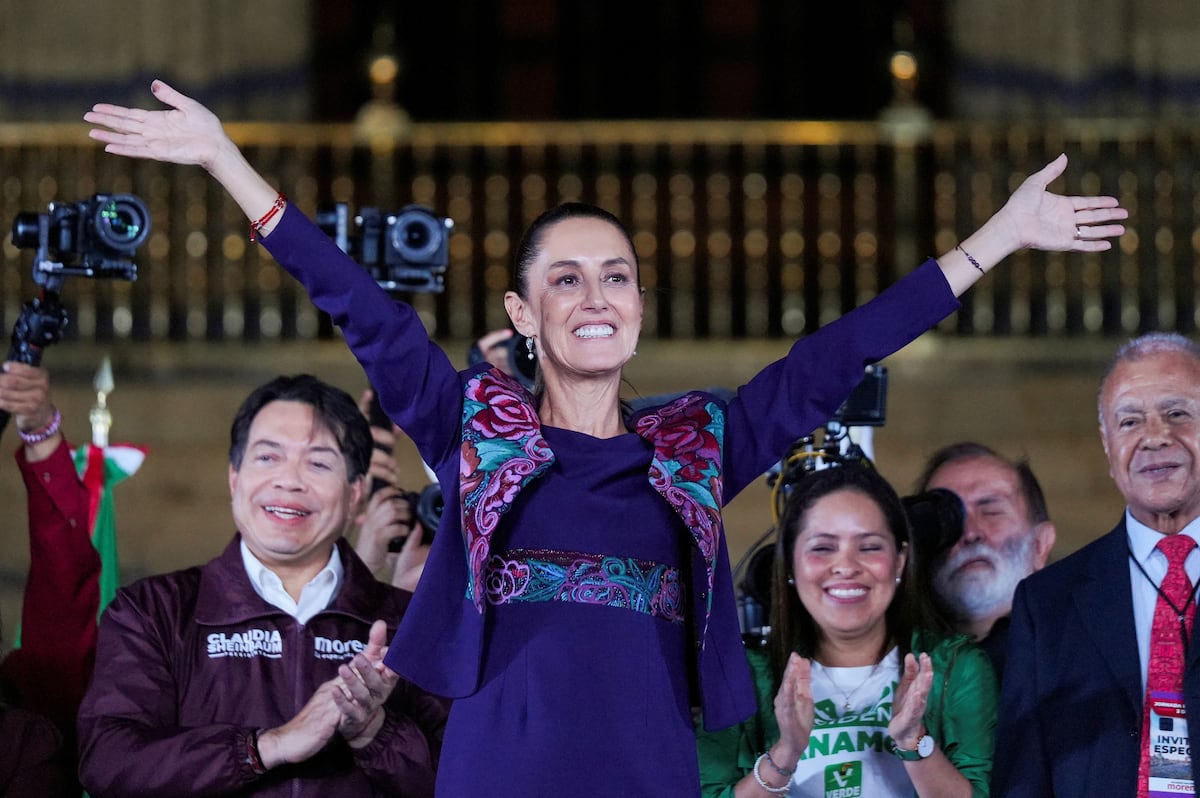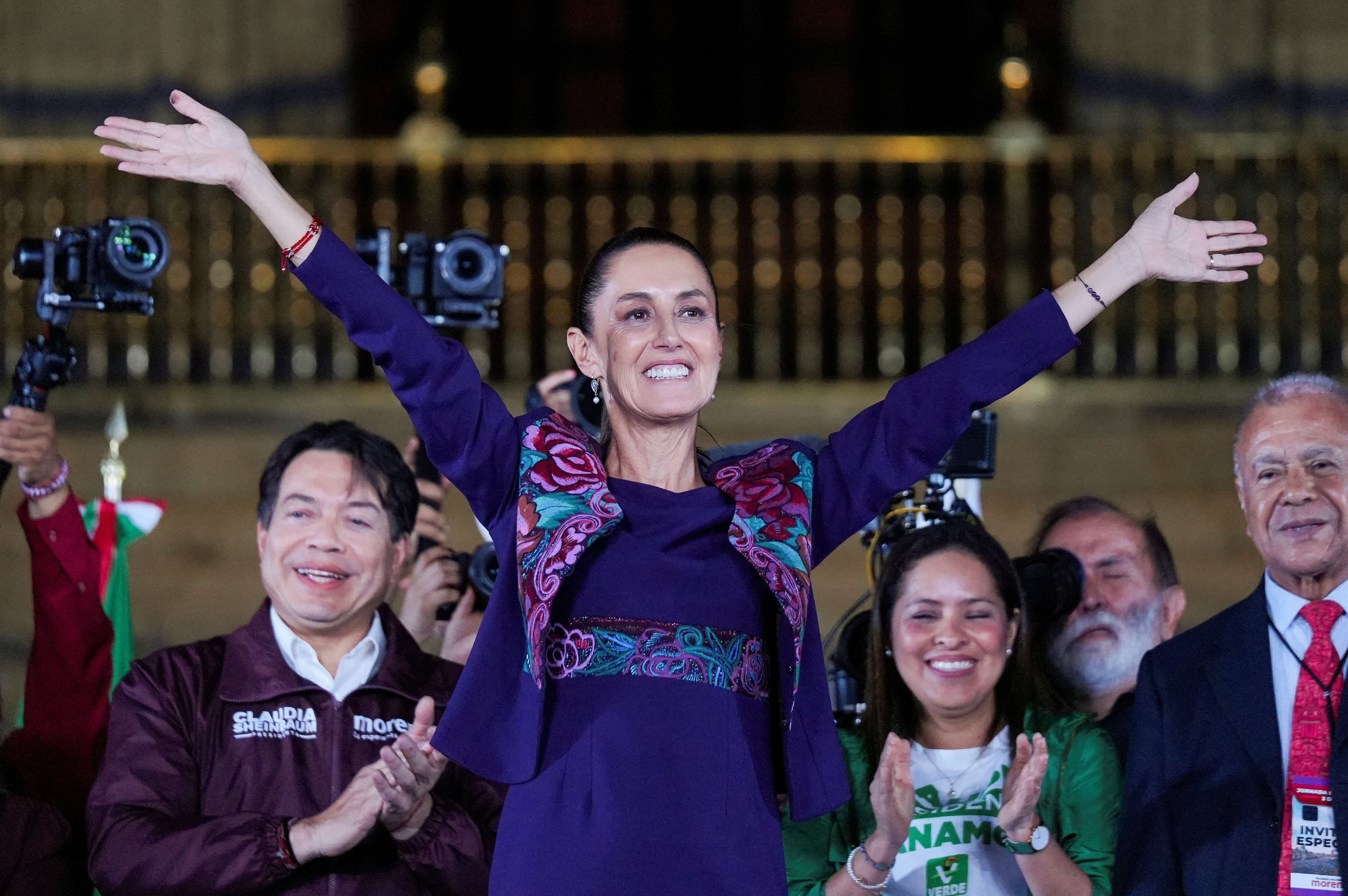Mexico has chosen a woman as president for the first time in its history. Claudia Sheinbaum Pardo, scientist, 61 years old, won the elections with almost 59% of the votes, 31 points above her direct rival, Xóchitl Gálvez, and with a percentage higher than that of the current president, Andrés Manuel López Obrador, in 2018. The victory , which comes with an absolute majority in the Senate and a qualified majority in the Chamber of Deputies, confers enormous power on Mexico City's former head of government and represents a boost to the political project López Obrador began in 2014. which, in light of these elections, has become the core force of Mexican politics. The triumph also transmits a clear sign of the strength of the left in the country against the continental advance of the far right.
Starting October 1, Sheinbaum will rule a nation that has lived under the hyper-leadership of López Obrador for six years. The president, a deep connoisseur of the Mexican labyrinthis ubiquitous in political and institutional life and it is very difficult that his stamp does not endure. From the National Palace, he has led the agenda with continued initiatives and coups, while harshly criticizing those he considered his enemies. He was helped in controlling the narrative by an opposition that, determined to demonize his every gesture, only amplified the controversies he sowed daily during his morning press conferences. A failed strategy made worse by an attempt to present the elections as a plebiscite for López Obrador's legacy, ignoring not only his high popularity rating, one of the highest on the continent, but also Sheinbaum's specific weight.
The result of this struggle is the overwhelming victory of the left, whose candidate won the largest votes in recent Mexican history. At that time, López Obrador's project has had an undisputed success, but it is no less true that it leaves behind a very polarized country. An example of this rift is the damaging confrontation between the executive and the judiciary. The task of the new president is to heal wounds and restart the machinery of institutional cooperation, an essential element in undertaking what is perhaps the greatest of her tasks: the fight against insecurity.
Sheinbaum has in his favor the good economic moment that Mexico is experiencing and the solid progress made in the fight against poverty, two factors that were decisive for his victory. Persistence will strengthen your credibility, as well as open you up to a presidency based more on management successes than on charisma. “We are going to govern for everyone, but for the good of everyone“The poor first,” the president-elect said in her first speech, marking the main thrust of her project.
On the other hand, it's time for the opposition represented by the alliance between PAN, PRI and PRD stops announcing the end of the world every day and walk the path of political realism. If he does not do so, he runs the risk that on his right, from the limits of the system, a disruptive phenomenon will emerge in the wake of Donald Trump, Javier Milei or Nayib Bukele.
Mexico has six years ahead of it with a head of state coming to power backed by its political experience and a history of honesty. It is hoped that López Obrador keeps his promise and gives him a free pass once he retires. In a country bathed in blood and where poverty exists everywhereSheinbaum faces challenges important enough not to suffer from internal interference. To face this successfully, she must join forces and be aware that she is not only leading a political movement, but also the president of all Mexicans. It is time for everyone to join forces for the good of Mexico.

